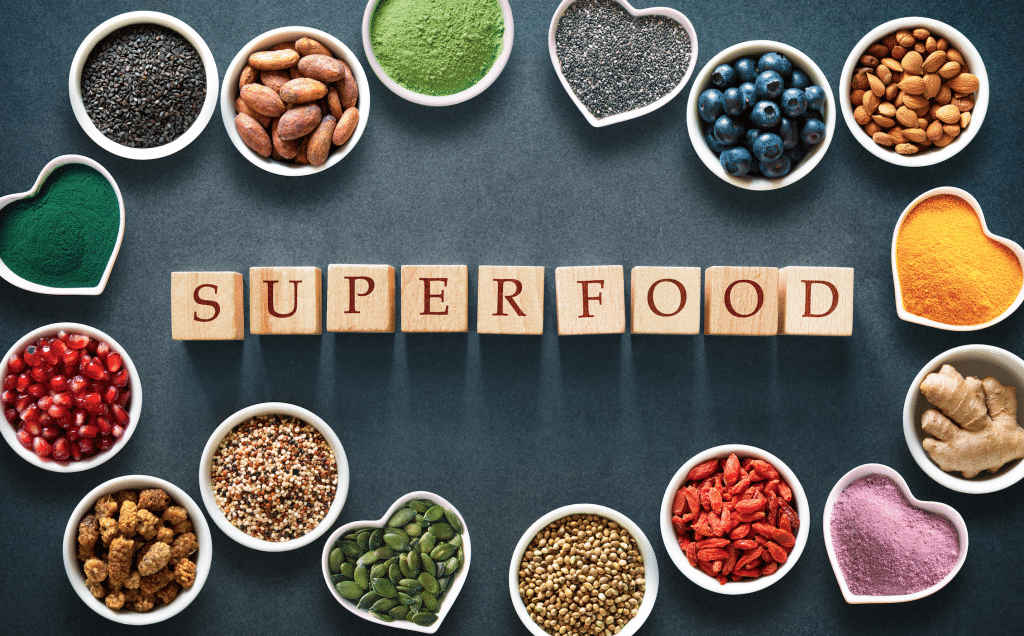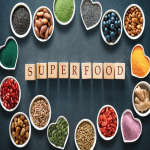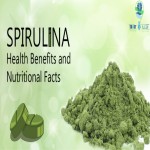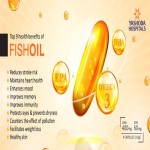Superfoods
What are superfoods?
The term "superfood" is a fairly new term referring to foods that offer maximum nutritional benefits and contain a very high nutritional density for minimal calories. Most superfoods are plant-based. Superfoods are full of vitamins, minerals, and antioxidants.
Antioxidants are natural molecules found in some foods that help neutralize free radicals in our bodies. Free radicals are natural byproducts of energy production that can damage the body.
Why should you eat superfoods?
It is important to understand that no single food holds the key to good health and disease prevention.
Many people have unrealistic expectations about these foods, believing that they will protect themselves from chronic diseases and health problems. They may eat one or two of these nutrient-rich foods in addition to a poor diet.”
Everyone has his own superfood. If the goal is your fitness so you are interested in losing weight, the general principle is to eat fewer calories than you need throughout the day. And while you're planning a calorie-reduced diet, you need to make sure you meet your requirements for the macronutrients - carbohydrates, proteins, and fats.
Most superfoods are dense in one or two specific nutrients, and pack very few calories. You learn how to determine your nutritional needs and determine which nutrient qualifies as a superfood for you.
Also, in case of Polycystic Ovary Syndrome (PCOS), eating unsaturated fats and high-quality protein can help with this condition. Avocados, salmon, and eggs could be your favorite superfoods.
What is the importance of superfoods?
Superfoods contain vitamins, minerals and antioxidants.
Antioxidants help neutralize free radicals in our bodies which are natural byproducts of energy production that can do damage to the body.
The food we eat not only nourishes us but there are bacteria living in our intestines that help in the digestion of foods. What we eat has to feed these gut bacteria as well, and superfoods are good at doing that.
High fibre is another quality that superfoods have. Fiber and other nutrients balance the gut flora and reduce inflammation in the gut. This also allows your intestines to better absorb nutrients from the food you eat.
How to include superfoods in your diet
Superfoods should be incorporated into your current diet. A person can incorporate these foods into a healthy, varied diet when available. However, don't overspend or search too much trying to find them.
Buy your superfood in season and from local sources to ensure the highest nutrient content. Don't rule out apples, carrots, or anything else, as all fruits and vegetables are basically superfoods.
Replacing as many processed foods as possible with natural unprocessed foods will greatly improve health.
Quick tips to help you get more superfoods in your diet:
1- Look at the colors on your plate. Is all your food brown or beige, then your antioxidant levels will likely be low. Add colorful foods like kale, beets, and berries.
2- Add chopped vegetables to soup.
3- Try replacing beef or poultry with salmon.
4- Add berries to oatmeal, cereal, salads, or baked goods.
5- Make sure to eat a fruit or vegetable every time you eat, including meals and snacks.
6- Have green tea or matcha tea daily.
7- Add turmeric, cumin, oregano, ginger, cloves and cinnamon from your favorite spices to increase the antioxidant content in your meals.
8- Snack on nuts, seeds (especially Brazil nuts and sunflower seeds) and dried fruits (without adding sugar or salt).
Examples of superfoods:
Avocado
Avocados are good for heart health. It is rich in monounsaturated fatty acids and rich in antioxidants. It contains lutein, which helps protect against age-related cognitive decline, Alzheimer's disease and dementia. It may also relieve pain caused by arthritis.
Berries
The high levels of flavonoids found in berries have been shown to reduce the risk of heart attacks. Common berries are acai berries, blueberries, tart cherries, cranberries, and goji berries.
Dark Green Leafy Vegetables (DGLVs)
An excellent source of nutrients including folic acid, zinc, calcium, iron, magnesium, vitamin C and fiber.
Making it extremely superior in its ability to reduce the risk of chronic diseases including heart disease and type 2 diabetes.
They also contain high levels of anti-inflammatory compounds known as carotenoids, which may protect against certain types of cancer
These include dark leafy vegetables:
- Swiss chard
- green cabbage
- spinach
Green tea
Green tea originally from China, is a low-caffeine beverage with a wide range of medicinal properties.
Green tea is rich in antioxidants and polyphenols that have powerful anti-inflammatory effects. One of the most prevalent antioxidants in green tea is catechin EpiGalloCatechin Gallate, or EGCG, which is probably what gives green tea its apparent ability to protect against chronic diseases including heart disease, diabetes and cancer.
Eggs
Eggs have always been a controversial topic in the nutrition world due to their high cholesterol content, but they remain one of the healthiest foods.
Whole eggs are rich in many nutrients including vitamins B, choline, selenium, vitamin A, iron and phosphorus.
It's also full of high-quality protein.
Eggs contain two powerful antioxidants, zeaxanthin and lutein, which are known to protect vision and eye health.
Salmon
The high content of omega-3 fatty acids in salmon and other fatty fish, such as trout and herring, reduces the risk of abnormal heartbeats, reduces cholesterol and slows the growth of arterial plaque.
Dark chocolate
Dark chocolate is rich in flavonoids with antioxidant activity, prevents coronary heart disease and certain types of cancer, and boosts the immune system.
The ingredient specifically responsible for these benefits in chocolate is cocoa powder. Manufacturers derive this from cocoa beans. Keep in mind that chocolate may contain added ingredients, such as added sugar, that may negate these benefits.
Nuts and seeds
Nuts and seeds are rich in fibre, plant proteins, and heart-healthy fats.
They also contain various plant compounds with anti-inflammatory and antioxidant properties, which can protect against oxidative stress.
Research suggests that eating nuts and seeds can have a protective effect against heart disease
Other popular superfoods include:
- Spirulina
- bluish green algae
- garlic
- wheatgrass
- Beets and beet juice
- turmeric
- Brazil nuts
- barley
Risks of Using Superfoods as Supplements:
Eating superfoods in supplement form doesn't mean getting your nutrients from real foods.
Many nutritional supplements contain ingredients that can cause a powerful biological effect on the body. Supplements may also interact with other medications. Taking supplements may cause vitamin or mineral toxicity, affect recovery after surgery, and lead to other side effects.
.









